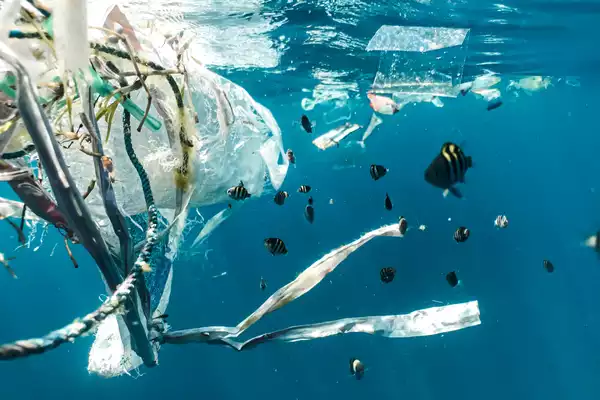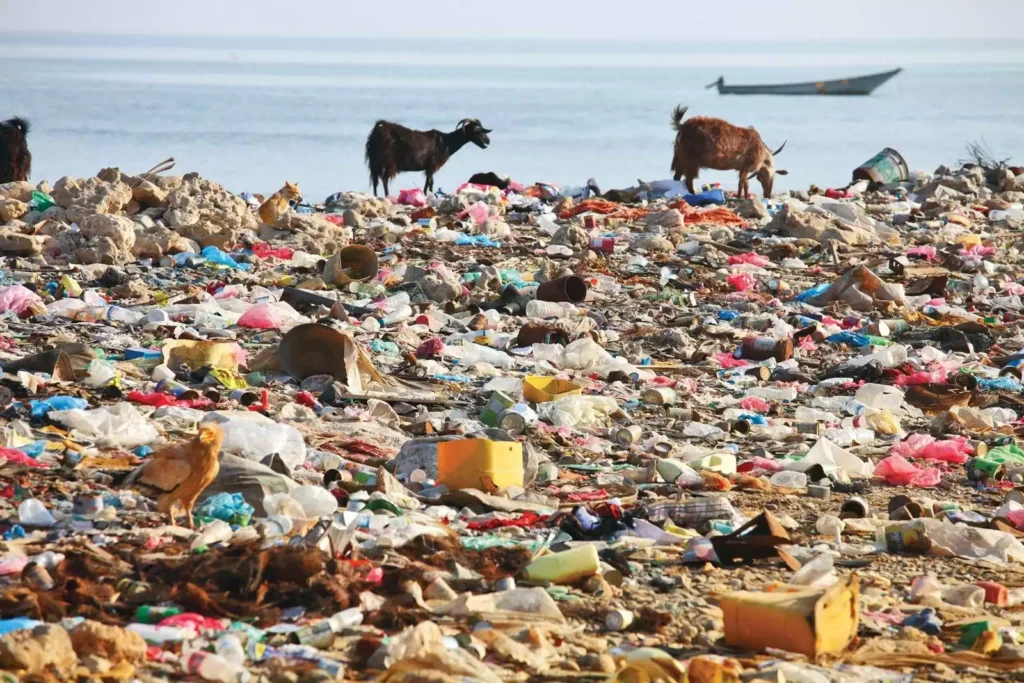The Public Accounts Committee’s report on ‘pollution caused by plastic’ has strongly criticized central and state agencies for their lackadaisical approach in handling and monitoring plastic waste in India.
Findings and Criticisms
- Non-Enforcement of Plastic Ban: The agencies have failed to enforce the ban on single-use plastic, evident by the widespread presence of plastic in both urban and rural areas across the country.
- Plastic Waste Generation: The report notes a substantial increase in plastic waste generation from 15.9 lakh tonnes per annum in 2015-16 to 41.2 lakh tonnes per annum in 2020-21.
- Unutilized Plastic Waste: In 2019-20, 50% of the total plastic waste (34.7 lakh TPA) remained unutilized, contributing to pollution of air, water, and soil, impacting human health.
- Data Gaps and Inconsistencies: The panel highlighted significant data gaps, as observed from CAG’s 2022 audit findings.
- Many state pollution control boards did not provide data on plastic waste generation for 2016-18 to the CPCB.
- Inconsistencies were noted in data shared by urban local bodies with state pollution control boards.
- Waste Management Activities: The panel scrutinized the waste management activities of the environment ministry, Central Pollution Control Board (CPCB), state pollution control boards/committees, and urban development departments in major metropolitan cities.
- Governance Issue: Non-compliance with Plastic Waste Management Rules 2016 (latest notified in 2023), particularly concerning Extended Producer Responsibility (EPR).
- The lackadaisical approach of the CPCB and State Pollution Control Boards/ Pollution Control Committees (SPCBs/PCCs) enabled plastic units to operate without valid registrations.
Critical Observations
- Lack of Mechanism: The report highlighted a serious lack of mechanisms for assessing the generation, collection, and safe disposal of plastic waste.
- Stakeholders Not Collaborating: Stakeholders, including the ministry, CPCB, and state pollution control boards/committees, were found to be working independently without a coordinated effort to control plastic waste generation and establish effective collection and disposal systems.
- Incomplete and Invalidated Data: State urban departments provided incomplete and invalidated data to the ministry, impeding informed decision-making due to a lack of uniform assessment methodologies.
Recommendations
- Projection for Plastic Waste Growth: The committee emphasized the need for plastic waste growth projections to formulate a comprehensive waste management policy.
- However, the CPCB has not undertaken this essential task.
- Online reporting of data: It recommended “mandatory” online reporting of data on the national dashboard.
- Plastic Ban and Extended Producer Responsibility (EPR): While acknowledging the ministry’s ban on hard-to-collect/recycle single-use plastic items from July 1, 2022, and EPR rules, the PAC called for a “comprehensive policy” to address plastic pollution.
- Finding Alternatives: The committee stressed the importance of cost-effective and reliable alternatives to plastic.
- They recommended immediate steps like promoting eco-friendly options, funding R&D for alternatives, ensuring accountability of implementing agencies, encouraging recycled plastic use, and improving recycling facilities.
- Penal provisions: Penal provisions for ULBs failing to establish Plastic Waste Management (PWM) systems.
Segregation and collection process: Engaging rag pickers and junk dealers to enhance the segregation and collection process
Ref: Source
| UPSC IAS Preparation Resources | |
| Current Affairs Analysis | Topperspedia |
| GS Shots | Simply Explained |
| Daily Flash Cards | Daily Quiz |



